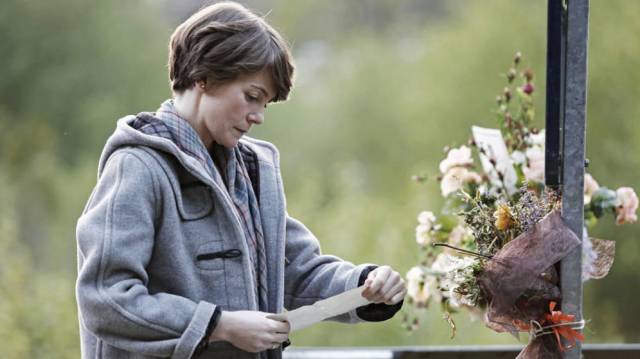
 The masses lead lives of quiet desperation despite the moments of contentedness that can be cultivated by the smallest or briefest of actions. Set in the Basque Country, Jon Garaño and Jose Mari Goenaga’s poignant drama Flowers (titled Loreak in Euskara, the Basque language also spoken in the film) paints a portrait of three women whose paths cross in profound ways during the course of several years, each facing life in varying ways.
The masses lead lives of quiet desperation despite the moments of contentedness that can be cultivated by the smallest or briefest of actions. Set in the Basque Country, Jon Garaño and Jose Mari Goenaga’s poignant drama Flowers (titled Loreak in Euskara, the Basque language also spoken in the film) paints a portrait of three women whose paths cross in profound ways during the course of several years, each facing life in varying ways.
Ane (played by Nagore Aranburu) is an unassuming woman thrust into early onset menopause and locked in a passionless marriage with her apathetic partner (Egoitz Lasa). When she begins receiving flowers from an anonymous admirer on the same day each week, changes start to take place. Ane's husband begins to show emotion, perhaps jealousy, but more likely anger at having his own romantic shortcomings made apparent by the romantic gestures of presumably another man. He can sense the joy that begins to seep into Ane’s life through the care she takes to put the lively arrangements in a vase and showcase them in their home. Fearing his wrath, Ane hides the flowers at work.
Lourdes (played by Itziar Ituño) works as a tollbooth operator. She has a nose ring and appears distant and moody. A married mother of one, there is something different about her, as if she doesn’t belong where she is. She must also tolerate her passive-aggressive and controlling mother-in-law, Tere (Itziar Aizpuru), a huge point of contention that creates a rift in her marriage to Beñat (Josean Bengoetxea). Ituño's portrayal of Lourdes is complex, a lot simmers beneath the surface that fills the film with the melancholy of poor choices made and opportunities missed.
The skill with which the leads portray their characters infuses the script (written by directors Garaño and Goenaga with Aitor Arregi) with so much underlying meaning, it is worth seeing again to capture the numerous subtleties missed during a first viewing. The movie overflows with an abundance of flower imagery (the sender and receiver switch during the second half of the film) that cleverly elicits the idea of each woman as a metaphorical flower, not just in terms of sexuality and fertility, but in how each woman reacts to love or the lack of it, and the grace or regret with which they eventually face loss, blossoming or withering in the process.